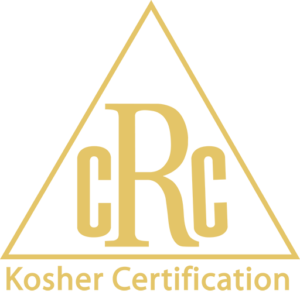Kosher Basics
Foods in general can be grouped into three broad categories:
- Innocuous: Some food items are always acceptable as kosher. Generally, these would be foods such as water, sugar, and salt which are minimally processed.
- Kosher when supervised: Other foods, such as oil, glycerin, and corn syrup, may be kosher if the ingredients and process used meet kosher definitions and when supervised by a reliable kosher authority.
- Never Kosher: Some foods may never be kosher. Examples include shellfish and pork, both of which are prohibited by kosher law.
In addition, all kosher food can be grouped into three categories:
- Meat: Only meat and meat by-products from kosher species of animals are permitted, and then only if they are slaughtered by a specially trained “shochet” (ritual slaughterer). Kosher species include cattle, sheep, chicken and turkey.
- Dairy: Milk, cheese and other dairy products must come from a kosher animal in order to be kosher. Milk derivatives like casein are considered dairy when used in kosher foods, even though the USDA may classify them as “non-dairy.”
- Pareve: Pareve means neutral. Some foods are inherently kosher in their natural state such as fresh fruits, vegetables and grains. These foods, produced without meat or dairy content, are designated with the pareve status and may be eaten with either dairy or meat products.
Kosher law prohibits the mixing of meat and milk, so foods like cheeseburgers and chicken parmesan are unacceptable. Foods with neither meat nor dairy ingredients are considered pareve, or “neutral.” The certification agency will determine if the product contains dairy ingredients or is produced on equipment used for dairy products, to preclude consumers mixing meat and dairy foods.
Click here to view the cRc PowerPoint Presentation: What is Kosher.
Passover
Passover is an 8-day holiday that takes place in the spring and commemorates the Exodus of the Jewish people from ancient Egypt and involves a unique set of additional kosher laws. During Passover, those who keep kosher refrain from eating leavened products, such as bread and cookies. Although kosher the rest of the year, certain grain products and their derivatives may not be eaten during Passover. Special supervision is required for Passover production.
A Successful Kosher Program
After the company is successfully certified, the company will be provided with three documents:
- Schedule A: A list of pre-approved Raw Materials which may be used in the kosher facility. This will include ingredients which are inherently kosher (such as salt and water) as well as ingredients which are kosher-sensitive and require kosher certification (such as oil and glycerin). The Schedule A may be expanded to include as many ingredients as necessary.
- Schedule B: A full list of approved formulas, comprised of Raw Materials already approved on the Schedule A.
- Letter of Certification (LOC): This is a full document certifying that the company products are kosher. This letter may be placed on your website to let customers know your products are kosher-certified.
These documents will be made available on our secure website,
EZcRc.org, allowing the option to access your company information 24/7/365, submit new ingredients and formulas for approval, and customize kosher letters as needed.
When the certification process is complete, you will be provided with the trademarked cRc Kosher logo which can be placed on all your packaging, alerting customers to the kosher status at the Point-of-Sale (POS).
New Markets
Kosher certification can help your company reach new markets and expand your customer base. According to recent studies,
the kosher food market is currently estimated at $305 billion, and is growing by 12% annually.
In addition to the core market of kosher consumers, many people who have cultural reasons to avoid meat, dairy, or certain other ingredients, or who have allergic sensitivities to those items, will rely on the kosher symbol to ensure that the integrity of their food.
cRc Edge
Established in 1932, cRc Kosher, with a highly recognized kosher symbol, is in the highest tier of global kosher certifiers yet competitively priced for industries of every size. Our clients value our amazing customer service and fast turnaround. Additionally, the kosher letters we issue are available on our website, and our clients have a secure online portal to allow 24/7 access to their kosher records. Those that partner with us are thrilled with our proven success and positive attitude.
 The word kosher means “fit” and refers to food items prepared in compliance with kosher law. To be certified kosher, a kosher certification agency must attest that all ingredients in the product and the process of preparing the product meet kosher standards. To do this, the kosher certification agency checks the sources of all ingredients, including any processing aids that contact the food, verifies the kosher status of equipment in manufacturing, and sets up a system by which the integrity of both ingredients and equipment is monitored and maintained.
The word kosher means “fit” and refers to food items prepared in compliance with kosher law. To be certified kosher, a kosher certification agency must attest that all ingredients in the product and the process of preparing the product meet kosher standards. To do this, the kosher certification agency checks the sources of all ingredients, including any processing aids that contact the food, verifies the kosher status of equipment in manufacturing, and sets up a system by which the integrity of both ingredients and equipment is monitored and maintained.
